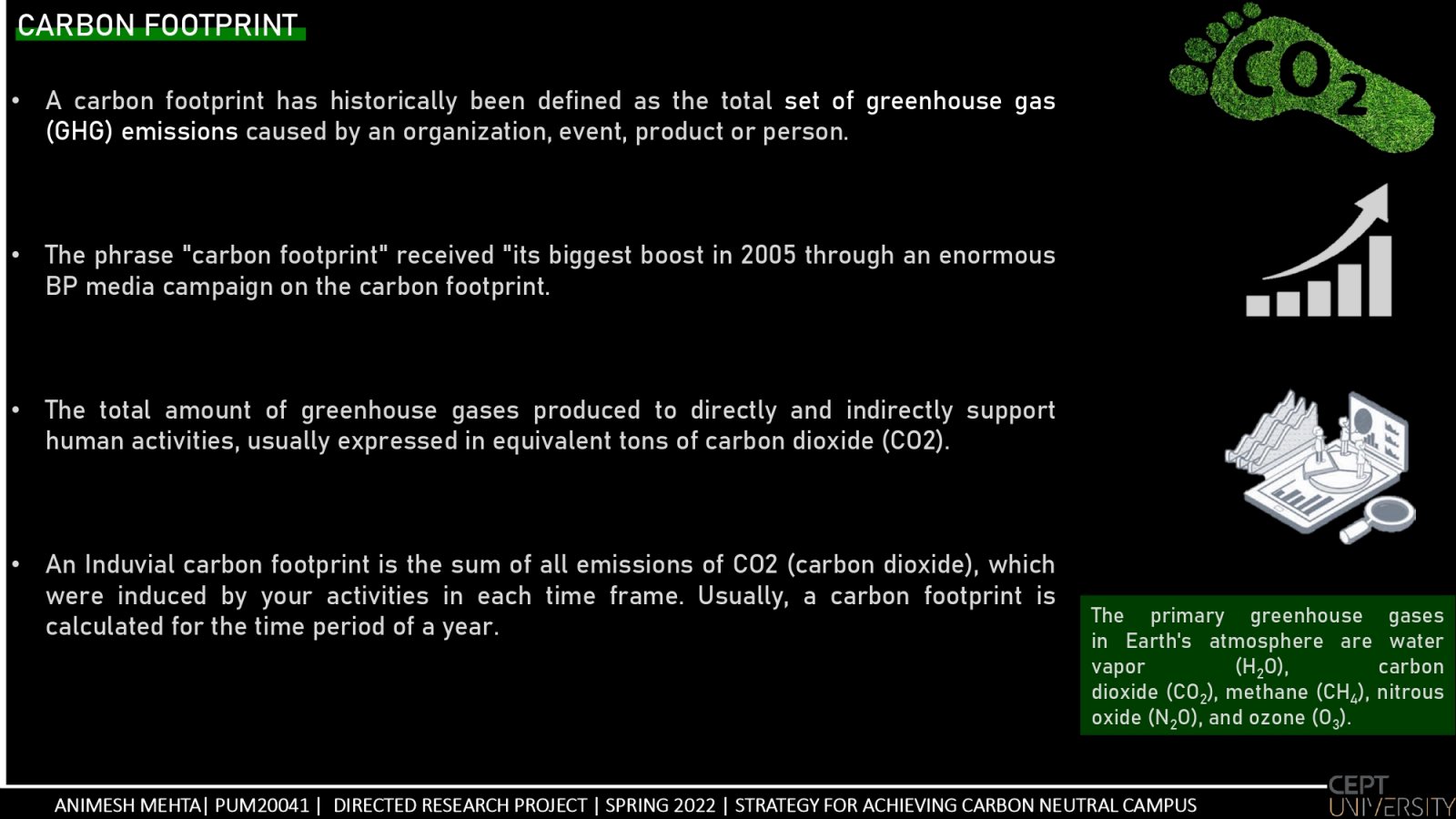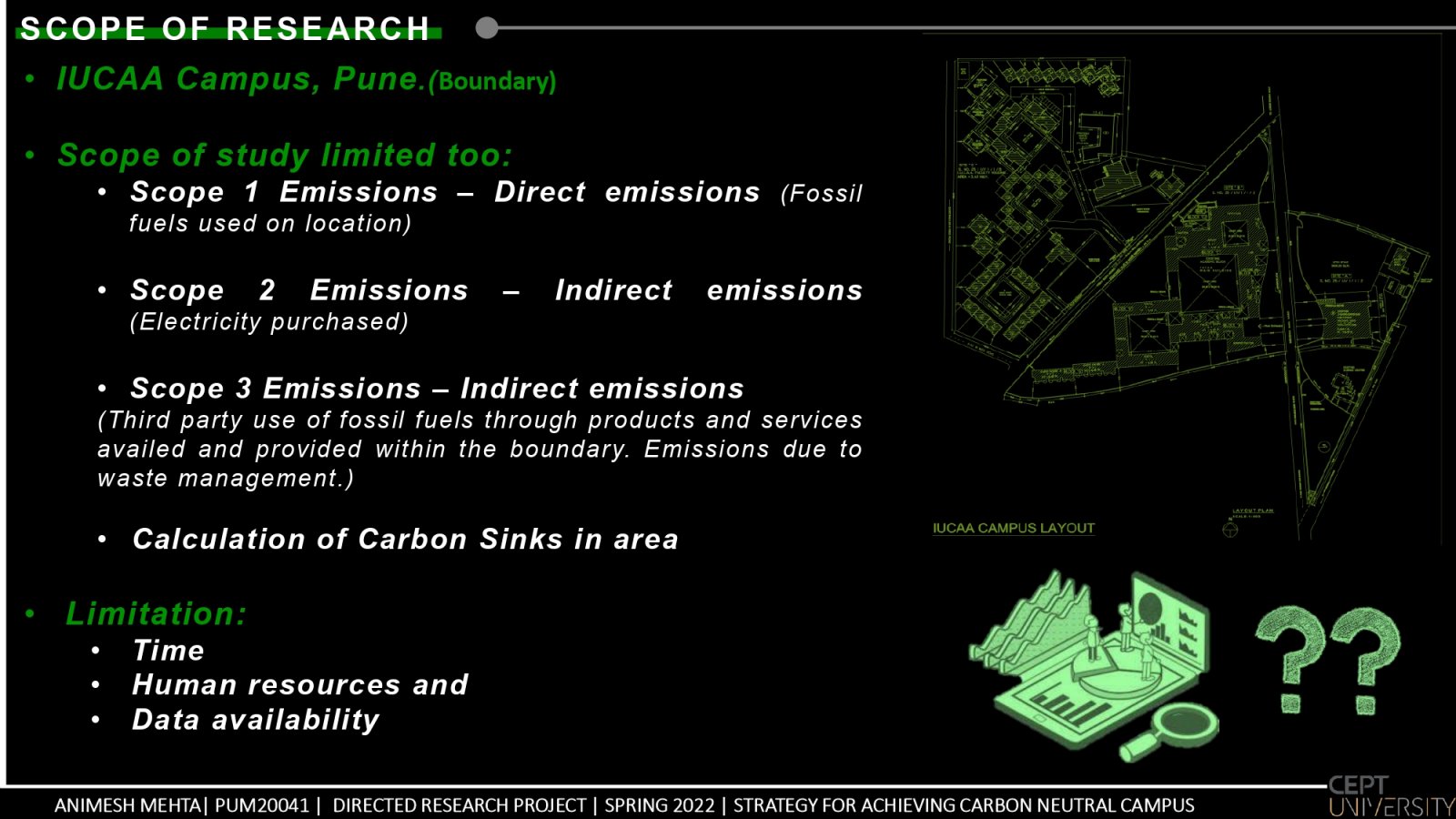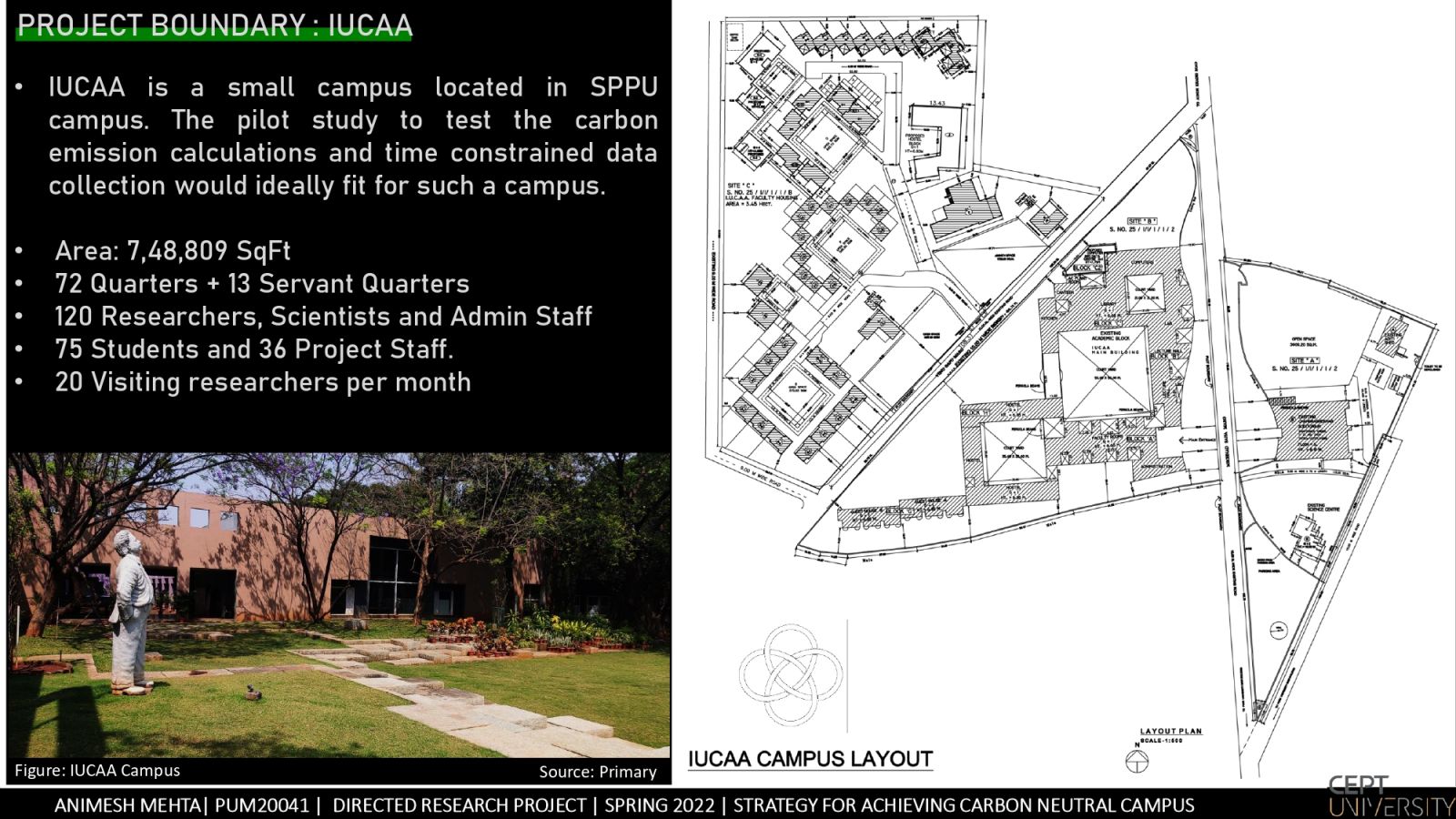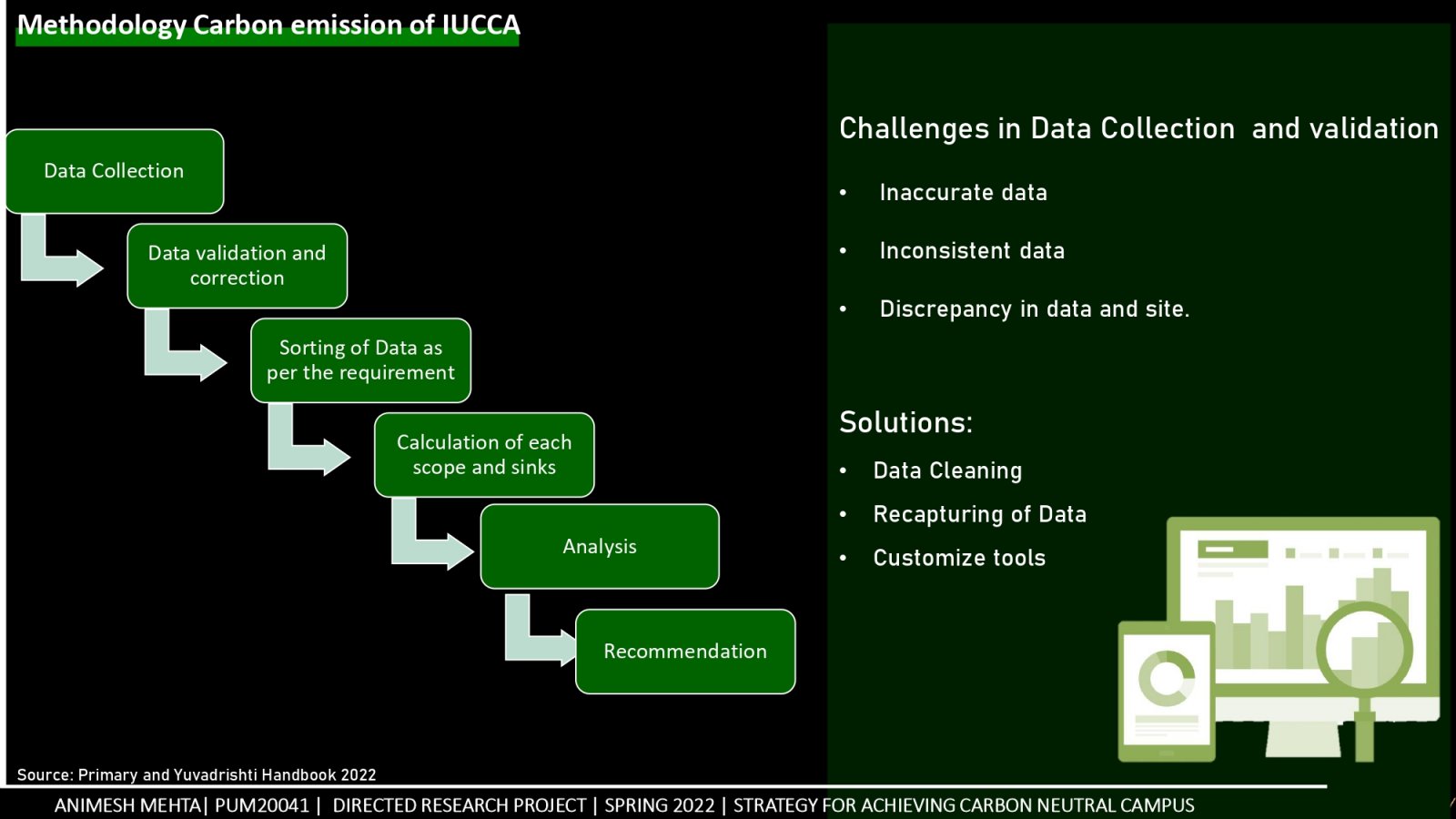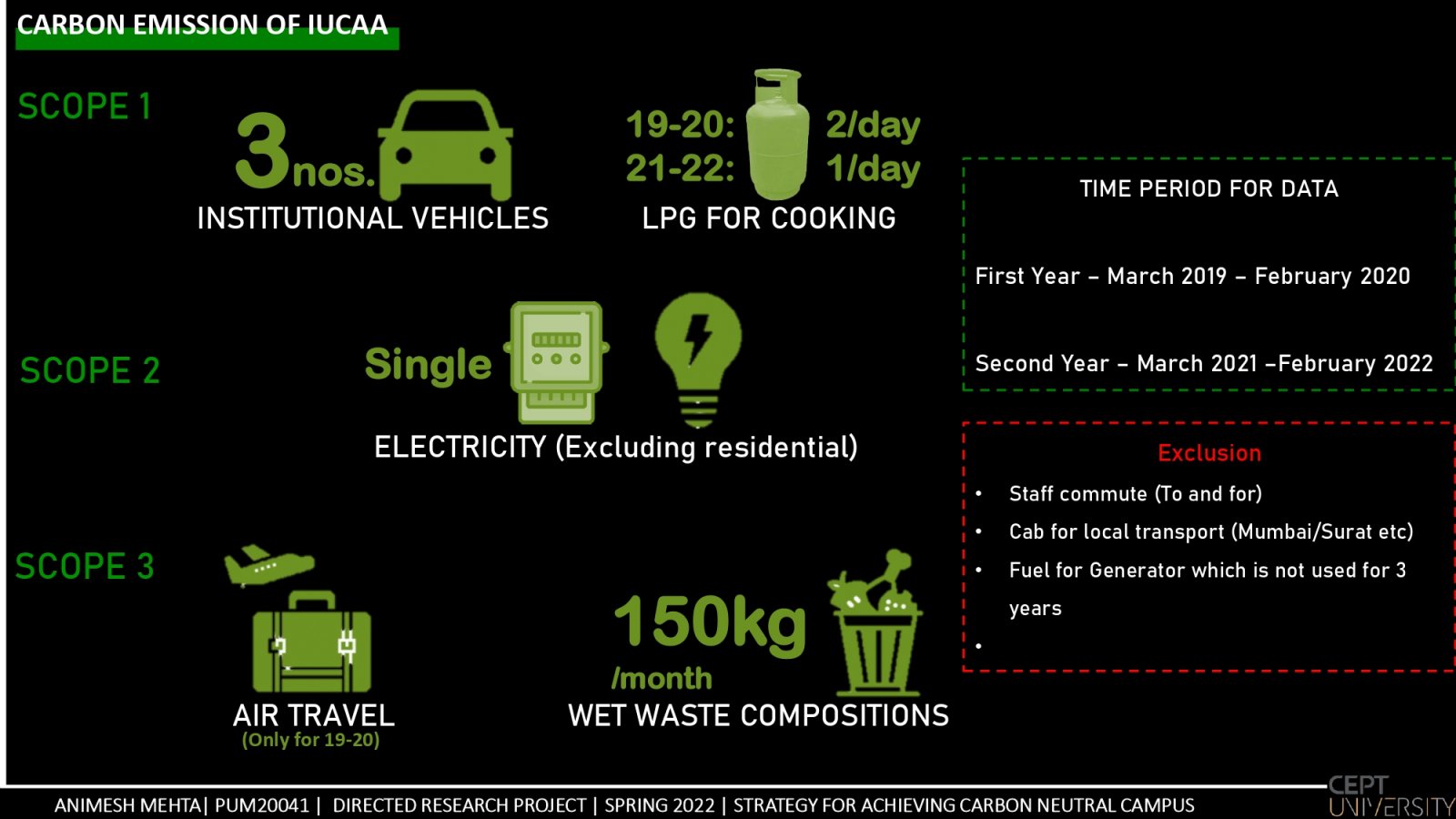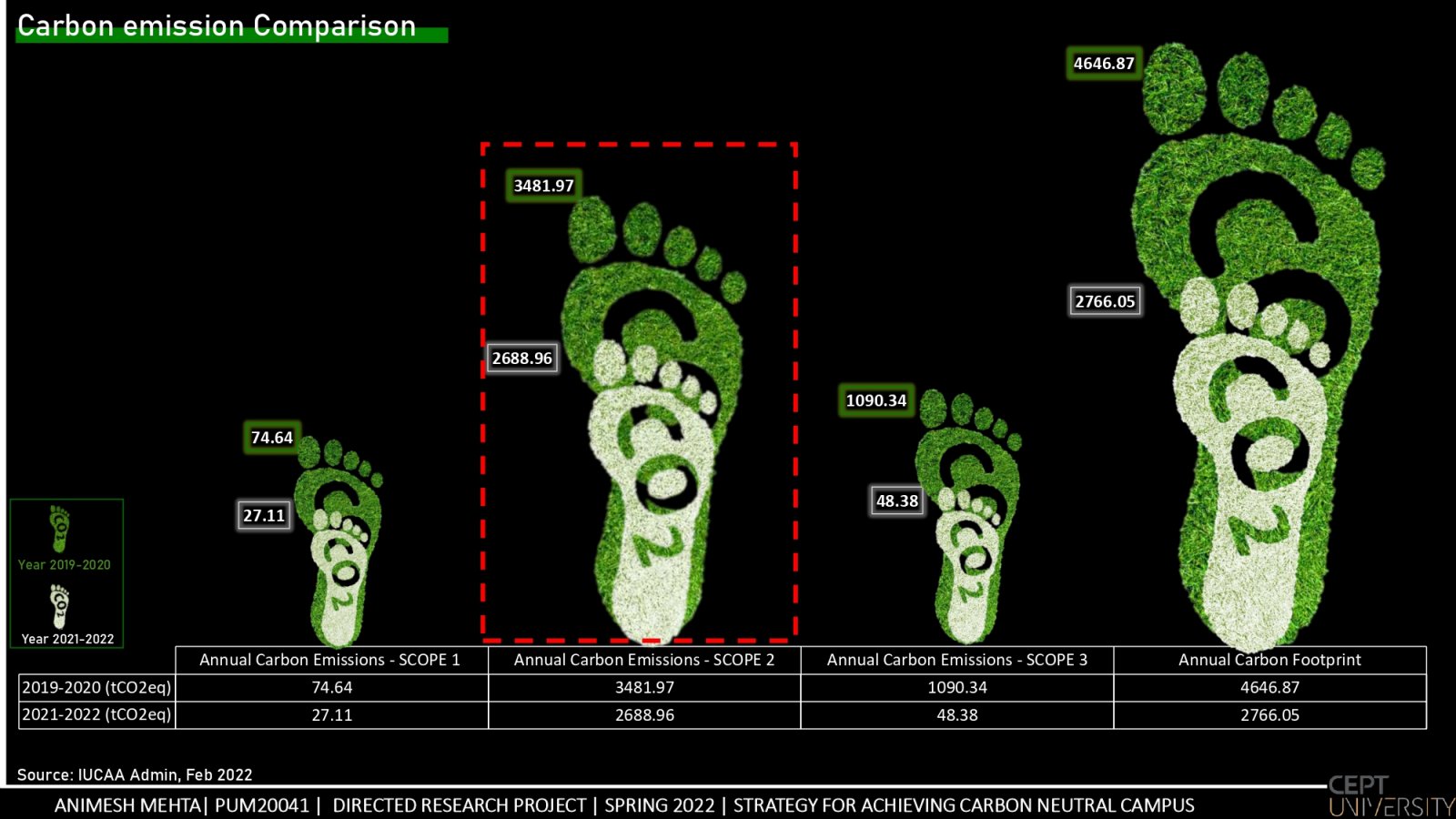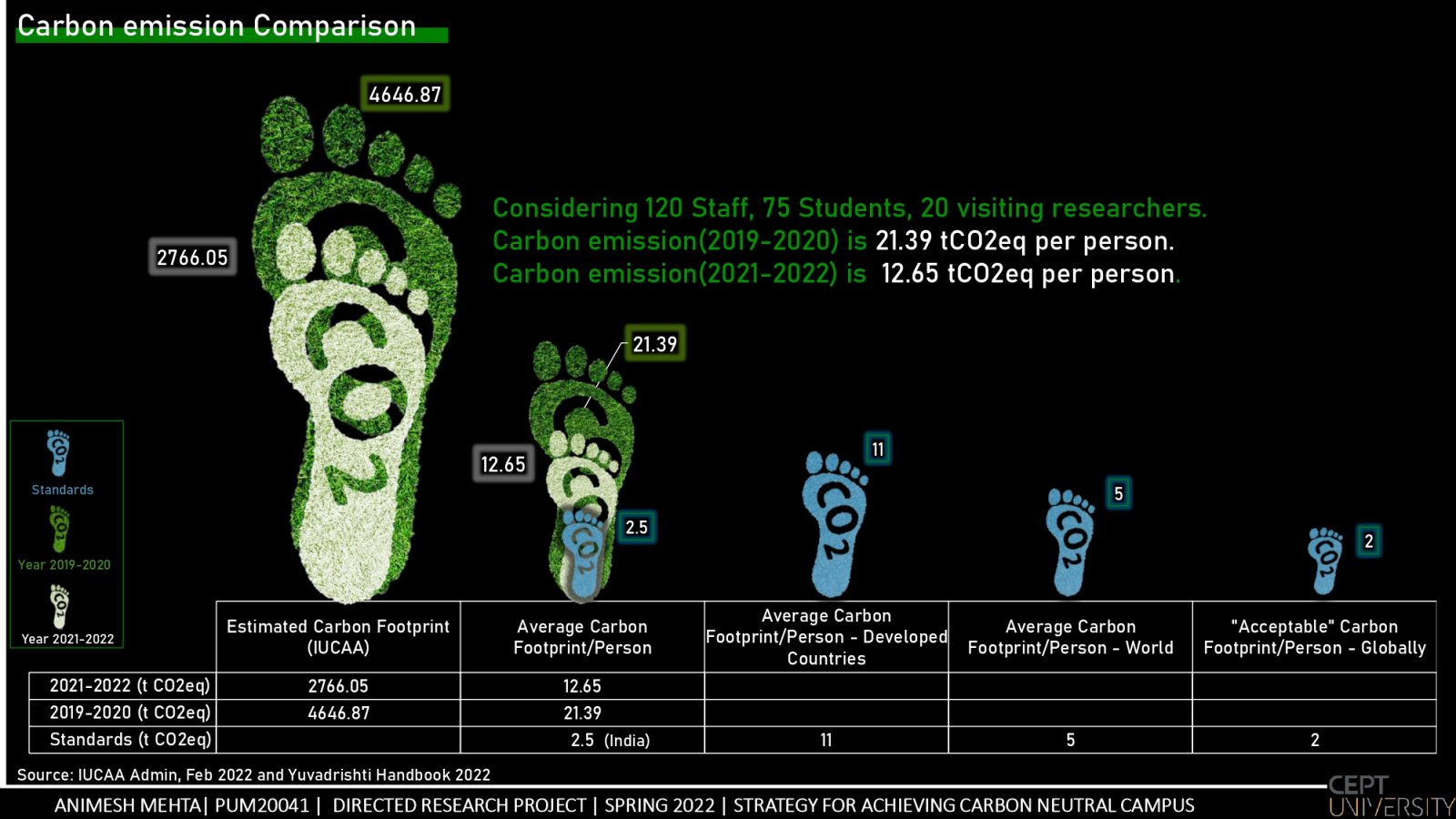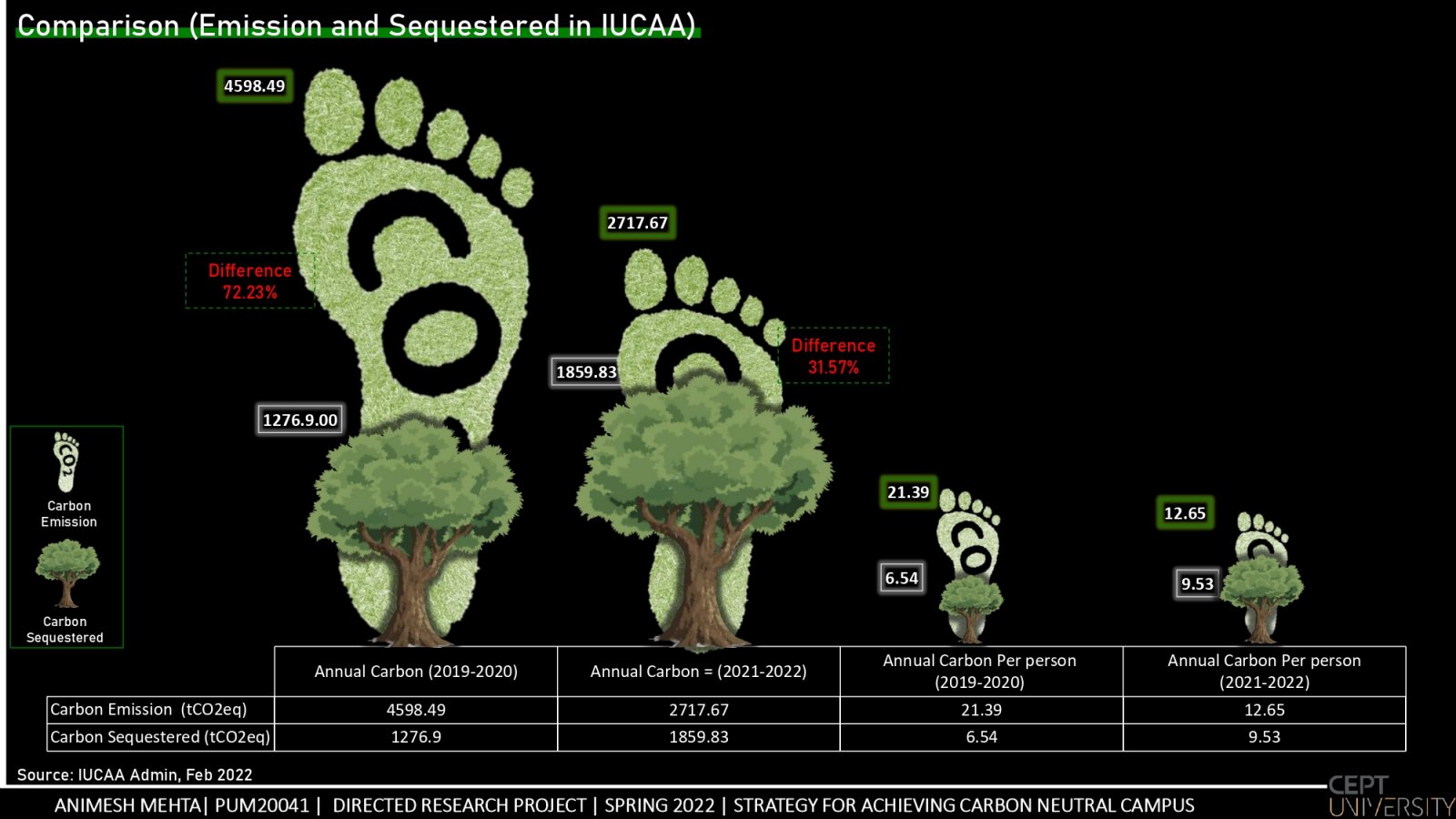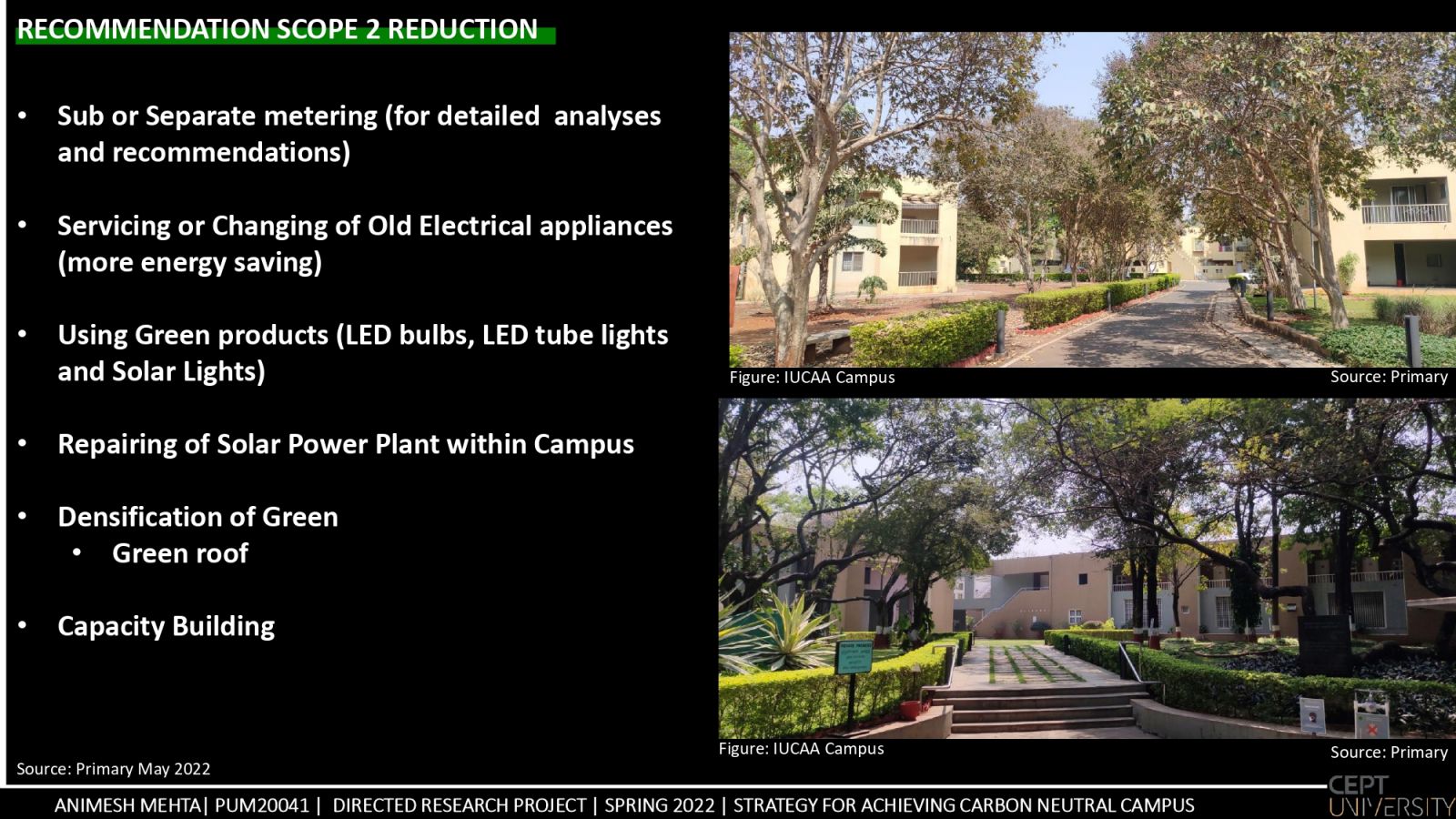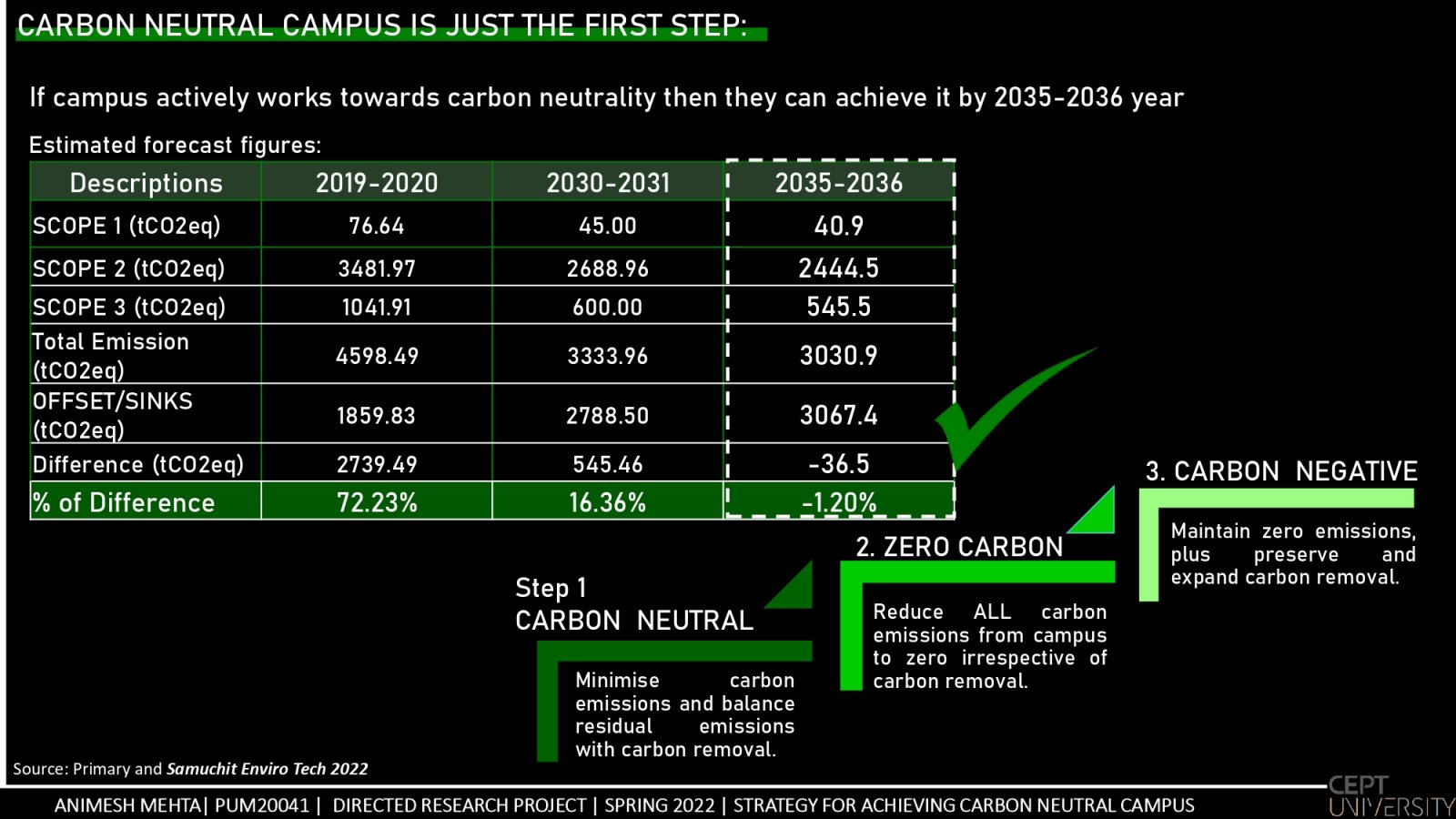Your browser is out-of-date!
For a richer surfing experience on our website, please update your browser. Update my browser now!
For a richer surfing experience on our website, please update your browser. Update my browser now!
The concept of Carbon Neutrality is gaining momentum in the recent years due to the raising
awareness on climate change. Climate change can be related to environmental damage,
which creates a pressing need to address the challenges posed. Various initiatives like the
Paris Agreement at COP 21 and Glasgow Climate Change at COP 26 Conference to reduce
the harmful emissions and carbon footprint.
The aim of the initiative is to achieve net zero emissions and to sustain it for a
longer period. Pune Knowledge Cluster works with academia and research institutes to
address the local challenges using sustainable and innovative methods. Educational institute
campus in Pune was selected to study and propose measures for becoming a carbon
neutral campus. A detailed assessment, also known as carbon auditing, was conducted to
identify the greenhouse gas emissions in scope 1, 2 and 3 occurring on the campus and
strategies were put forth to reduce these emissions. Carbon neutral campuses will be one of
the first steps taken by educational and research institutions towards the country’s goal of
reaching carbon neutrality by 2050.
This report starts with studying the existing scenario of carbon emissions divided in three
scope areas within the selected site. The emissions are quantified keeping in mind the
inclusions and exclusions of the study. It further introduces offsets and sinks of the study and
the impact that they have on the campus. After analyzing the above, the study moves
towards comparisons across the timeline as well as across other campuses in the country
and abroad. All this leads to recommending suggestions for campuses who aim towards the
achievement of carbon neutrality. This study aims to act as a framework for similar studies
for campuses who take a step towards sustainability.
